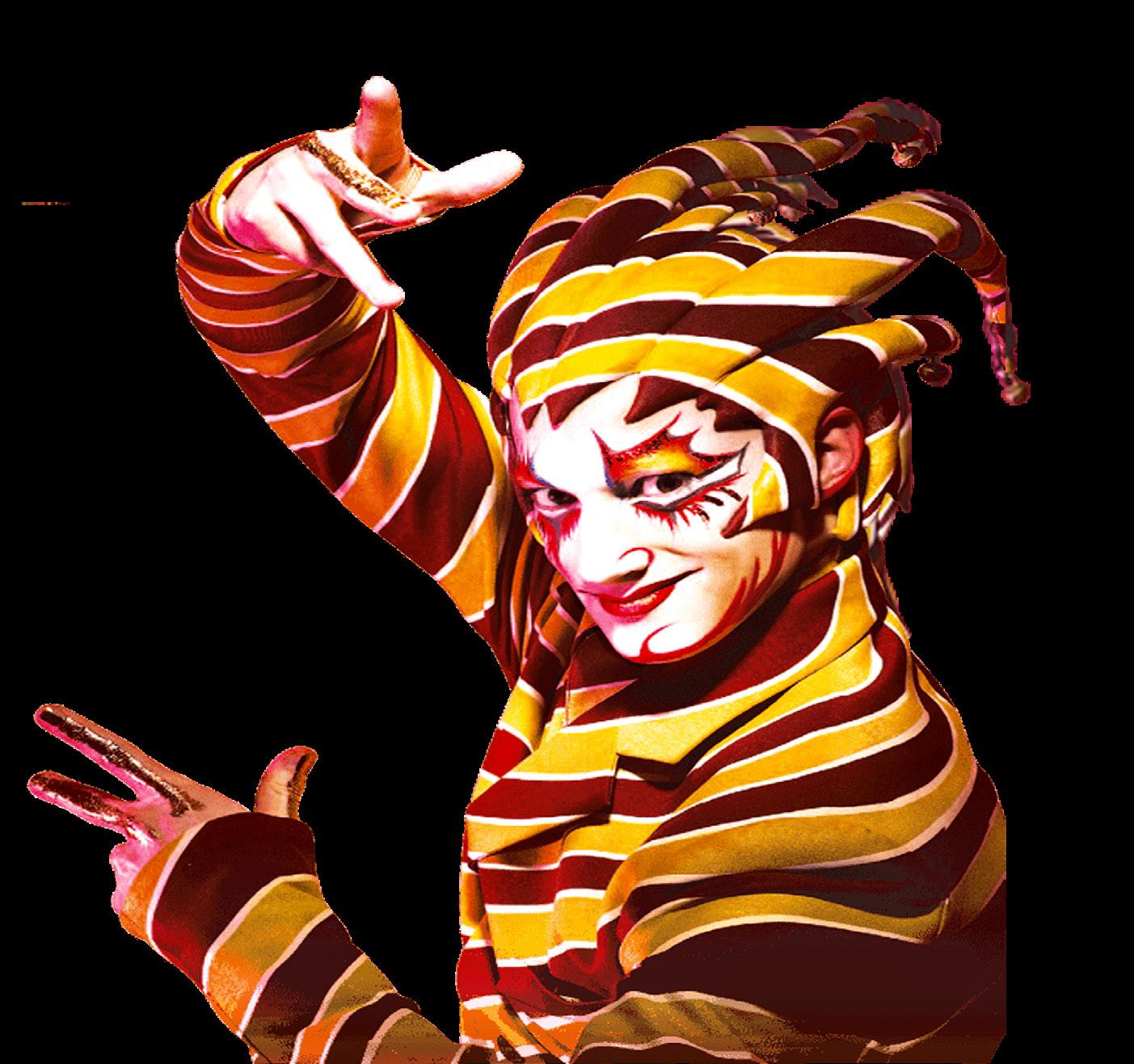
4 minute read
From the Big Top to a (Slightly) Smaller Stage
David Freedman, IP3
Hi folks! I was recently asked by Phyllis Harmon to begin working on a column for Voices Magazine and was delighted to accept. In this column I’ll be focusing on various ways in which seemingly common (or sometimes not so common) subject matter can be used to create better speeches and therefore better speakers. Among other topics I will cover include how to come up with themes for your meeting, discovering which speech topics work best for you and your speeches, and even interviewing other Toastmasters like yourselves who have had unique experiences in their lives that contributed to their becoming public speakers
Advertisement
Cory and I met last year when we went to prison together. Yes, you heard that right. We met while at prison. (No, not IN prison.) As part of our contest season that leads up to the District Speech Evaluation and Toastmasters International Speech Contests, Clubs in the prison system are included in the contests.
While the inmates aren’t allowed to progress further due to their incarceration, it still encourages them to develop a greater sense of competitive spirit and drive while continuing to focus on increasing their communication and leadership skills.
I met Cory Sylvester at the Columbia River Correctional Institution. I was there volunteering as a Judge while Cory was competing in the Evaluation portion of the contest, which he won. As it turns out, a great deal of Cory’s background included working in Cirque du Soleil. Intrigued, I wanted to know more about what inspired him to work in the circus and how being a performer helped him when he decided to transition into becoming a public speaker. Please welcome to the stage Cory Sylvester! David Freedman: When did you first join Cirque du Soleil?
Cory Sylvester: My first show was in 2006.
DF: What were some of your favorite experiences of working in the circus?
CS: It was a dream job for me and some of the best moments were when a kid or young adult would say to me that they were so inspired by what I did that they wanted to do the same. I was inspired by seeing the same show, and I built my life around running with that inspiration. I was there to give back the inspiration I’d received.
DF: Where did your touring schedule take you?
CS: I had the privilege to play in 48 different countries—Western Europe, Scandinavia, Eastern Europe, Russia, Asia, Middle East, South America, and North America.
DF: What were the reasons you finally left?
From the Big Top to a (Slightly) Smaller Stage
Hi folks! I was recently asked by Phyllis Harmon to begin working on a column for Voices Magazine and was delighted to accept. In this column I’ll be focusing on various ways in which seemingly common (or sometimes not so common) subject matter can be used to create better speeches and therefore better speakers. Among other topics I will cover include how to come up with themes for your meeting, discovering which speech topics work best for you and your speeches, and even interviewing other Toastmasters like yourselves who have had unique experiences in their lives that contributed to their becoming public speakers.
CS: I spent a decade working towards this dream then another decade performing it. For ten years I traveled full-time and performed what inspired me. The show closed in 2016. The life of the show had come to a beautiful end, as did that chapter in my life. A clean closure to a wonderful journey.
DF: Why did you join Toastmasters? How did you find out about it?
CS: My mother offered me a gift for my birthday, and I chose to take a public speaking seminar. Toastmasters seemed like a good way to start to understand [what] I was asking for as a gift. I joined because I want to learn to share inspirational stories because I know the power of inspiration.
DF: How did working in Cirque du Soleil prepare you for being in Toastmasters, if at all?
CS: I love the study of stage presence, and Cirque has been a great opportunity to learn about it. Speaking is a very different beast than performing physically, but performing physically night after night is great practice for learning how to publicly speak.
DF: What are some takeaways you can give for being in Toastmasters and how it’s helped you professionally and/or personally?
CS: I’m not afraid to speak at meetings at work anymore. Knowing that I’m on a path towards being a professional speaker drives me to bring my best to my colleagues and to encourage their best. I feel much more courageous in asking my colleagues what they dream to do, and it seems to inspire them to answer. Toastmasters has helped me to organize my thoughts and words in an effective way and taught me not to be afraid to try to use them
David Freedman joined Toastmasters in 2013. He is currently a member of Babble-On and Moser Community. He is serving as VP Education and Sergeant at Arms for Babble-On.










